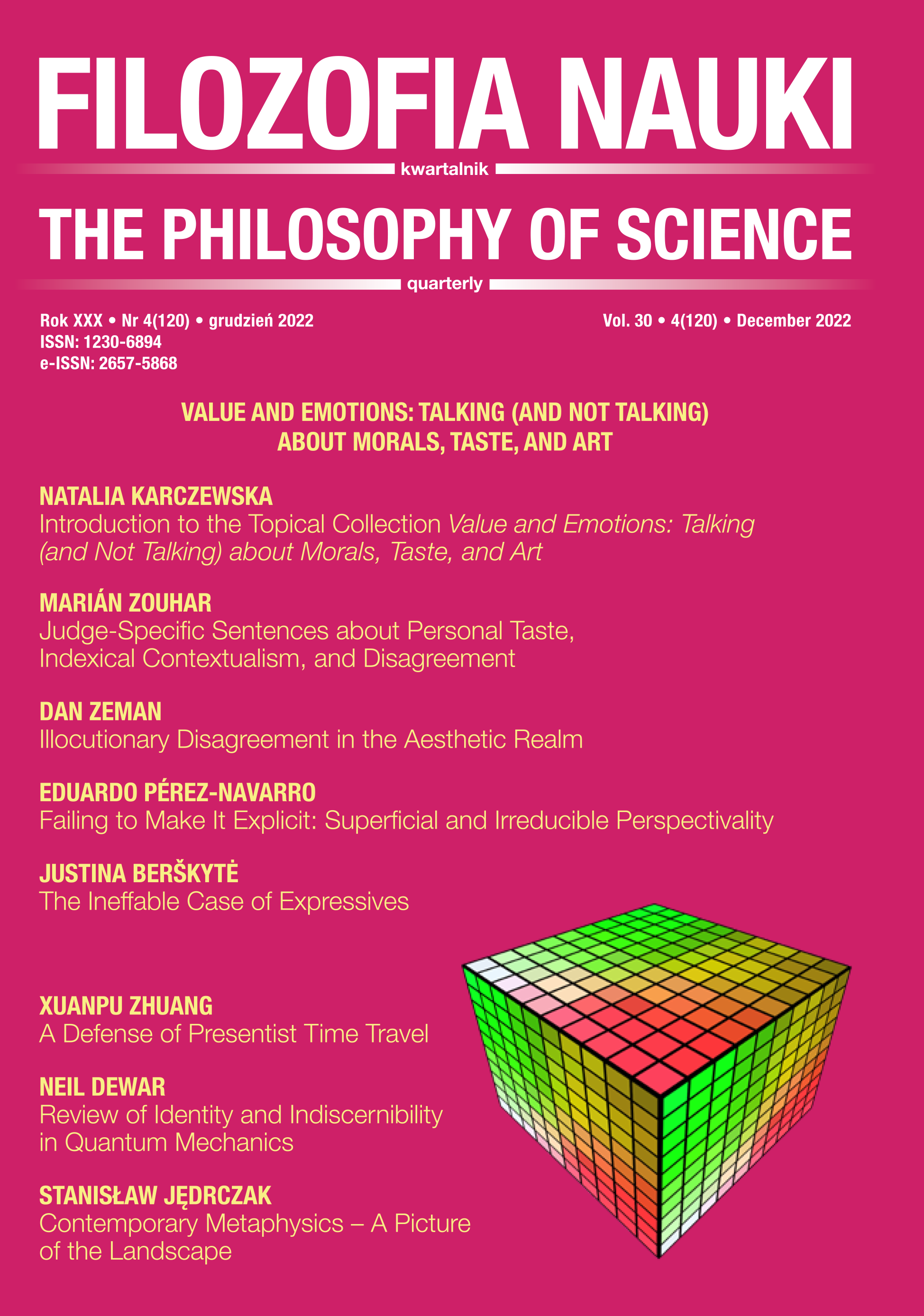Introduction to the Topical Collection Value and Emotions: Talking (and Not Talking) about Morals, Taste, and Art
DOI:
https://doi.org/10.14394/filnau.2022.0031References
Ayer A. J. (1936/1952), Language, Truth, and Logic, New York: Dover.
Barker C. (2013), “Negotiating Taste,” Inquiry 56(2–3), 240–257. https://doi.org/10.1080/0020174X.2013.784482
Buekens F. (2011), “Faultless Disagreement, Assertions and the Affective–Expressive Dimension of Judgments of Taste,” Philosophia 39(4), 637–655. https://doi.org/10.1007/s11406-011-9318-5
Clapp L. (2015), “A Non-alethic Approach to Faultless Disagreement,” Dialectica 69(4), 517–550. https://doi.org/10.1111/1746-8361.12104
Drożdżowicz A. (2016), “Descriptive Ineffability Reconsidered,” Lingua 177, 1–16. https://doi.org/10.1016/j.lingua.2015.12.011
Geurts B. (2007), “Really Fucking Brilliant,” Theoretical Linguistics 33(2), 209–214. https://doi.org/10.1515/TL.2007.013
Glanzberg M. (2007), “Context, Content, and Relativism,” Philosophical Studies 136(1), 1–29. https://doi.org/10.1007/s11098-007-9145-5
Gutzmann D. (2016), “If Expressivism Is Fun, Go for It” [in:] Subjective Meaning: Alternatives to Relativism, C. Meier, J. van Wijnberger-Huitink (eds.), Berlin: De Gruyter, 21–46. https://doi.org/10.1515/9783110402001-003
Kaplan D. (1999), The Meaning of Ouch and Oops: Explorations in the Theory of Meaning as Use, Los Angeles: UCLA (manuscript).
Karczewska N. (2021), “Illocutionary Disagreement in Faultless Disagreement,” Organon F 28(3): 531–556. https://doi.org/10.31577/orgf.2021.28303
Kölbel M. (2004), “Faultless Disagreement,” Proceedings of the Aristotelian Society 104(1), 53–73. https://doi.org/10.1111/j.0066-7373.2004.00081.x
Downloads
Published
How to Cite
Issue
Section
License
Copyright (c) 2022 Natalia Karczewska

This work is licensed under a Creative Commons Attribution-NonCommercial-NoDerivatives 4.0 International License.



















 Filozofia Nauki/The Philosophy of Science | ISSN 1230-6894 | e-ISSN 2657-5868
Filozofia Nauki/The Philosophy of Science | ISSN 1230-6894 | e-ISSN 2657-5868